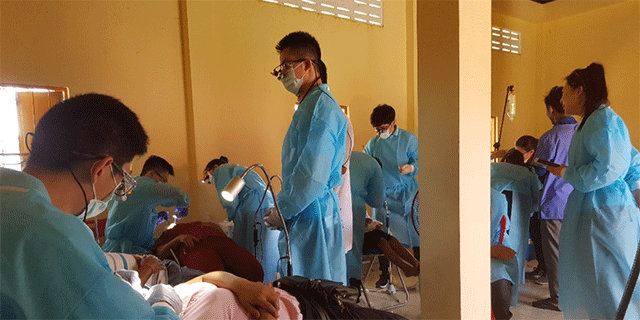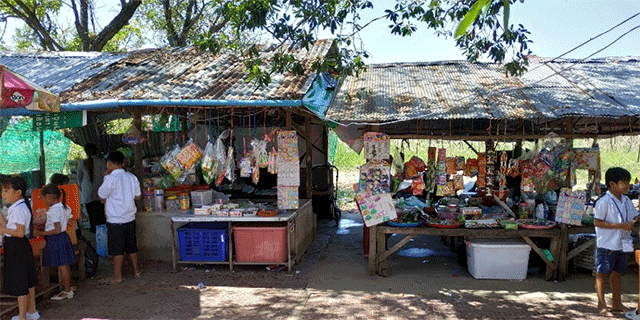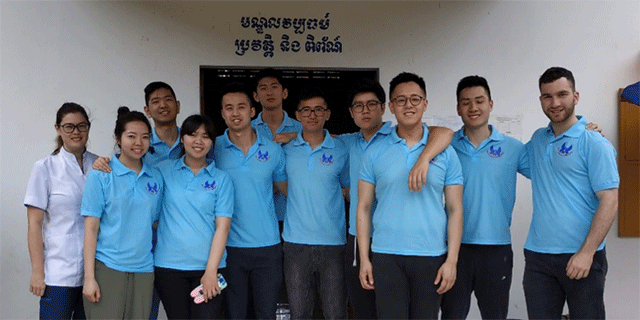Cambodia through the eyes of a dental student
In December of last year, eleven Doctor of Dental Surgery students travelled to Phnom Penh, Cambodia, to volunteer their time in impoverished communities. Student William Hong reflects on the experience.
On our first day of volunteering, we took an early bus ride to our local clinic, which was set up in a temporary location at Kdey Takoy Primary School. A small room contained five chairs, one compressor for handpiece drills and no vacuum suction.
Over orientation, we learned that the clinic would be focussed on preventative and atraumatic dentistry, to prevent dental disease such as caries (dental decay) and periodontitis before they occur. Due to the clinic’s limited resources, the procedures we could undertake were restricted.
We focussed on oral hygiene instruction (with the help of a translator), remineralisation using silver diamine fluoride, fissure sealants, atraumatic restorative technique (i.e. the use of hand instruments to restore broken down teeth), and extraction of unrestorable teeth.
Although we were advised of the high Decayed-Missing-Filled Teeth (DMFT) index in the area, nothing could truly prepare us for what we saw.
Cambodia is a developing nation with a high poverty rate. Our patients were children between six and 12 years of age. For the majority of these children, at least half of their deciduous teeth were heavily broken down with caries, most to a point beyond repair. Typically, the first permanent molar erupts at six years old. We saw seven and eight-year-olds with large holes in teeth that are meant to last a lifetime.
Just 5 metres from our clinic, there was a make-shift canteen, housed under big tarps, selling snacks, sweets, and soft drinks, and there was no shortage of customers. This is typical in the hundreds of schools in the area.
Talking to the locals, we learned that conditions are improving in the main city centres, such as central Phnom Penh, but there still is a lot to be done. We talked to a family of five who had a single worn down toothbrush to share between them.
We spent one day at Correction Centre One, for criminal offenders. On arrival, we went through multiple security checks before we could enter the makeshift clinic. Setting up took an hour as we transformed a spare office into a functional surgery with six chairs. Dental work could only be completed during the prisoner’s free period. We performed preventative oral hygiene instruction, restorations, and extractions.
The trip was incredibly fulfilling. I felt a huge sense of accomplishment aiding a community where oral health hasn’t been a priority in the past. I hope our efforts initiate a greater focus on oral health and preventative dentistry in these communities, moving forward. The trip has reaffirmed my purpose in dentistry and will ensure I stay true to why I chose this profession – to help others. Beyond my studies, this humbling experience has reinforced my philosophy and will help me deliver greater patient care throughout my career.

Dental clinic at Kdey Takoy Primary School

Canteen at Kdey Takoy Primary School

Doctor of Dental Surgery students in Phnom Penh, Cambodia